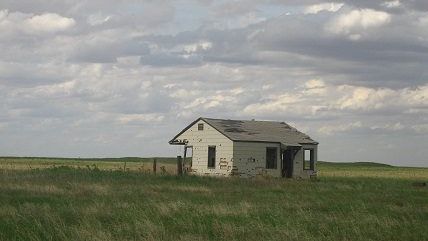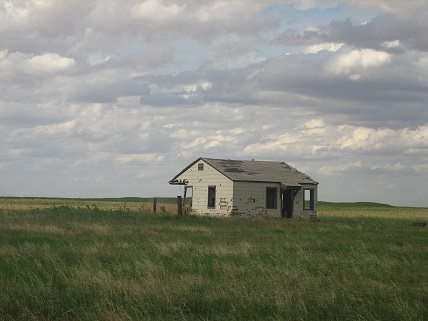Who Can Save Us From the Farm Bill's False Savings?
Just as critics feared, the Farm Bill is waste billed as savings.


When the U.S. Senate voted in favor of passage of the 2014 Farm Bill in February, the buzz on Capitol Hill was that the bill would "save" taxpayers lots of money.
A giddy press release put out by the Senate Agriculture Committee, hailing the passage of the Farm Bill as it awaited Pres. Barack Obama's rubber stamp signature, used some version of the word "save" at least eight times.
The Farm Bill "[s]aves $23 Billion…. save taxpayer money… finding savings… save taxpayers billions…. saves taxpayer dollars…." and so on.
Many of the savings claims in the press release are attributed to the Ag Committee chairwoman, Sen. Debbie Stabenow (D-Mich.), who authored the bill.
Stabenow issued a slew of her own press releases touting the bill's cost-saving ability.
The bill will "reduce the deficit," boasted one.
And she touted the bill's savings in comments to the media.
"Specifically," read a New York Times report on passage of the Farm Bill, "Ms. Stabenow pointed out that the bill eliminates a much-criticized $5 billion-a-year crop subsidy to farmers who received the payments whether they grew crops or not."
She also put this shift front and center in her press releases.
"Eliminates unnecessary direct payment subsidies, a significant reform in American agriculture policy," her office wrote in a prominent bullet point on the Farm Bill. "Direct payments are paid out every year whether or not there is a need for support."
Stabenow is right that direct subsidies are an enormous waste of money.
But instead of simply eliminating such subsidies, critics like me suggested Stabenow and her bipartisan, bicameral colleagues in Congress were simply replacing them with another form of subsidies—taxpayer supported crop insurance—which could end up costing taxpayers even more money.
Still, Congress estimated the switch could save up to $14 billion per year.
How's that working out? Not so well.
In fact, crop insurance subsidies in the Farm Bill could cost billions more than predicted.
"U.S. farmers are about to reap a bumper harvest not just in corn and soybeans but also in new subsidies that could soar to $10 billion, blowing a hole in the government's promise that its new five-year farm bill would save taxpayers money," reported Reuters last month.
The news agency notes that would be "more than 10 times the U.S. Department of Agriculture's working estimate" of crop insurance payouts.
Not surprisingly, advocates I spoke with by email this week are outraged.
"While it's not surprising that the Farm Bill is outstripping cost estimates before its first year is over, it certainly is appalling," says Andrew Moylan, executive director of the R Street Institute.
"When Washington fails to honestly account for how much the federal government spends on food and farm programs, it gets in the way of much-needed reform," says Christine Harbin Hanson, national issue campaign manager with Americans for Prosperity.
"These latest reports serve as a reminder of why it's so important not to accept promises of spending reform at face value," says Coalition to Reduce Spending president Jonathan Bydlak. "The next time Congress wants to spend nearly a trillion dollars and promise reform, elected officials and voters alike ought to remember this case."
"Conservatives warned lawmakers that Farm Bill apologists were pulling a bait and switch by swapping the discredited direct payments program for even more costly open-ended 'shallow loss' subsidy schemes," says Joshua Sewell, senior policy analyst with Taxpayers for Common Sense. "We've been proven correct."
As if all this bad news weren't enough, news of the Farm Bill's massive waste coincides with the release of a damning new GAO report on crop insurance and climate change. The National Sustainable Agriculture Coalition characterizes the report as demonstrating the Farm Bill "may actually encourage shortsighted farming practices that increase a farmer's exposure to long-term climate change risks."
"Repeatedly bailing farmers out after extreme weather events through crop insurance subsidies without requiring them in exchange to adapt to climate change and build resiliency into their operations is the very definition of wasteful and shortsighted government," says Don Carr, an agriculture and environment blogger and longtime critic of federal farm policy, also by email.
"By failing to adequately reform subsidies, particularly crop insurance supports, Congress has encouraged environmentally harmful farming practices that threaten sensitive lands in addition to taxpayers' wallets," Moylan says.
In October, a spokeswoman for Sen. Stabenow called it "premature to speculate about the Farm Bill savings when major programs haven't even gone into effect yet." Translation: Once the really wasteful spending really kicks in, that's when the savings start.
I'll be the first to admit that I've never understood Washington math, where spending hundreds of billions of dollars of taxpayer money "saves" taxpayers money. But then, I'm not a member of Congress.
But maybe I can learn to think like one. So here's my pitch to Sen. Stabenow: If you'll please let me borrow your credit card for the holiday season, I promise I can save you thousands (or even more, depending on your credit limit).


Show Comments (54)